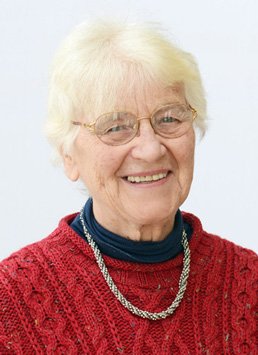Society for the Study of Women Philosophers, Inc.
a non-profit, tax-exempt educational charity 501(c)3 Internal Revenue Code
Sosipatra of Epheseus
fl. 350
Metaphysics
|
Kate Lindemann's Women Philosophers pages |
 |
Remember!! Your purchase of books by clicking on Abe Books or Amazon links through this site earns us a small commission that is used to provide travel scholarships. |
Sosipatra of Ephesus was born near the city of Ephesus in Asia Minor. Her biography is contained in Eunapius's Lives of the Sophists (wise men)
It should be noted that Amalod Momigliano in his work On Pagans, Jews and Christians says that it appears that Euapious modeled his biography of this pagan wise woman after that written by Gregory of Nyssa concerning his sister Macrina. See: Macrina
From Eunapius we learn that Sosipatra was born into a well established family of stature and wealth. She grew up on her father's estate. It is said that when she was about 5 years old two men came to work on the estate and they proceeded to convince the manager to allow them full responsibility for the vineyards. When harvest time came both Sosipatra and her father were present.
The harvest was exceedingly bountiful and her father, sensing some sort of divine intervention invited the two men to dine with him and treated them with great respect. Sosipatra attended the banquent and the men were struck by both the beauty and talent of the young child.
At the end of the meal they said to the father that this harvest was only a small aspect of their powers..."mere child's play"... And then they offered as gift of thanks for the wonderful banquet to exercise their greater power. They would run the estate for five years. They would also care for Sosipatra and see to her education. They assured her father that he had nothing to fear either about her health or well being. For his part, the father was to leave the estate and return when the five years were completed.
After some thought, agreement was reached. When after five years her father returned he found that his daughter was now well versed in Chaldean wisdom, had psychic and clairvoyant abilities - as well as retaining her remarkable beauty. (In work noted above, Momigliano states that these men were said to be "gods in the likeness of strangers", a common statement in literature of the times.)
Sosiparta later married Eustathius of Cappadocia, a man said to be of great ability but she outshone her husband in both 'beauty and wisdom'. She gave birth to three sons, one of whom late became a philosopher.
When her husband died, she went to Pergamon, a Hellenic city in what is now modern Turkey. Pergamon was a fairly new city, having been created in the mid third century. It's library and over all architecture and design were well known in the ancient world. You can get a sense of this city where Sosipatra of Ephesus did much of her philosophical work. It should be noted that Pergamon was also the residence of Aedesius,the philosopher. In his reference to her life and work, Eunapius ( Lives of the Sophists ) says that students would attend Aedesius's lectures and then go to hear the those of Sosipatra.
It is known that Maximus, who later became the tutor to the emperor Julian, was a pupil of Aedesius and is said to have done Sosiparta a favor to help her avoid the overtures of a relative, Philometer, who was much taken with her.
This page was last updated 12/15/14.
Society for the Study of Women Philosophers